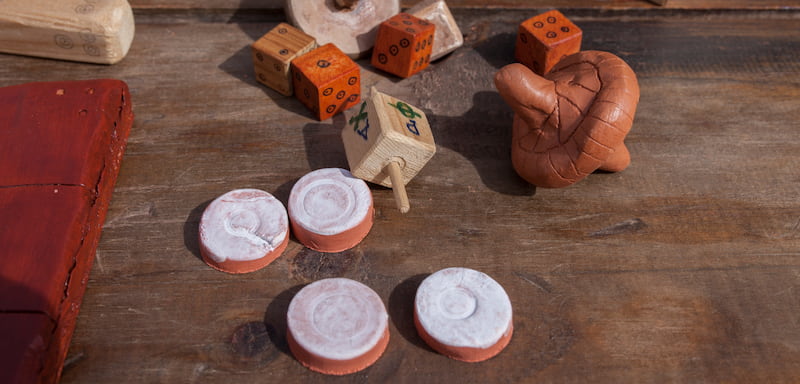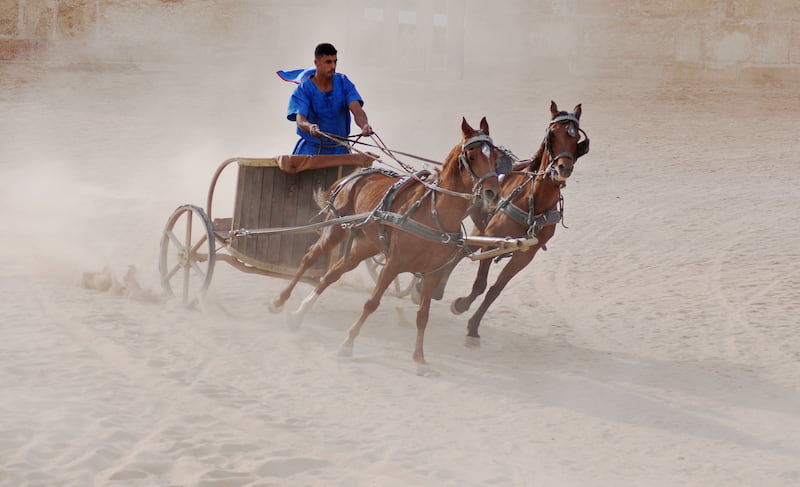Gambling in Ancient Rome

The legacy of Roman Empire was one of the influential civilizations in history, and its impact can still be felt today. Politics, architecture, and engineering are just some of the areas that in the 21st century can oft be found to have influences linking back to the innovative classical civilization.
One more sphere of influence of the Romans is in what we call gambling today. From casino chips we cash to the six faced dice we cast; the people of the great Empire have indelibly shaped the culture of gambling into what it has become.

Was Gambling Legal in Ancient Rome?
The Romans were avid fans of gambling, despite it not being entirely legal. Roman Emperors were concerned about the violence that occasionally broke out due to the outcome of a bet, or because cheating was rife. The emperors also had a healthy fear of magic, which they believed some players used to cheat and win.
Thus, gambling was illegal. This is despite it being quite popular amongst the ruling class. In actual fact, a litany of emperors would continue to gamble while also enforcing a ban. Claudius enjoyed playing dice so much that he wrote a book about it. Commodus managed to bankrupt his treasury, so in an effort to replenish its coffers he supposedly turned the Imperial Palace into a brothel and gambling house, a feat that “mad” Caligula had also achieved years previous. Caligula however may have occasionally gone too far in his quest for victory when losing. The story goes that he was a prolific cheat and furious loser. So strong was his dislike of losing that he was often inclined to have a few rich citizens killed, so that he could use the funds from their estates to continue gambling.
Regardless of gambling’s legality, the Romans would find a way to do so. In fact, their determination to have a bet would lead to the invention of the first casino chip! Dice games played for money were forbidden, and those found breaking the law could be punished by a financial penalty of four times their bet. By using chips, the Roman citizens could circumvent the law by claiming that they were only playing for fun should the authorities come calling.
The Festival of Saturnalia – A Celebration of Dice
There was, however, one day a year when gambling was not prohibited. In celebration of Saturn, the Roman god of agriculture, in December each year, the people of the Empire celebrated by turning convention on its head.
This would take the form of things happening that would not previously be commonplace – Masters, for example, would serve their slaves dinner. In another reversal of convention, dice games would be permitted as they were usually forbidden!

What Did They Gamble On?
Dice games, or Alea, were popular amongst the Romans and the dice themselves were often a reflection of the status of their owner. Whilst the wealthier citizens may own dice made from ivory or amber, the common people would have them made from wood, stone, or bone.
A popular game for the people of Rome was a dice game with a board. On this board there were thirty-six squares with different symbols, including leaves, letters, and crosses. Each player would have three dice, each with six numbered sides – identical to what we still use today. The best throw was to get a total of eighteen, three sixes, and this could be rewarded. If a player threw one or more dice showing a one, then they would be required to pay a fine.
Similar to today, betting at the races was a popular pastime as up to 250,000 Romans would flock to the iconic Colosseum to watch Chariot races. People of all classes and backgrounds could attend these races and gambling was rife. Archaeologists have even found evidence of people maintaining detailed records of the past performances of individual horses and their drivers, possibly inspiring future almanacs!
Possibly the most morbid bet in the Roman era was gambling on the fate of the warriors following a gladiatorial duel. At the end of these duels, the referee would ask the crowd whether the defeated gladiator should live or die. The attendees at the Colosseum would vote with their voices, and many could have money on the outcome!
Source: casino.com
